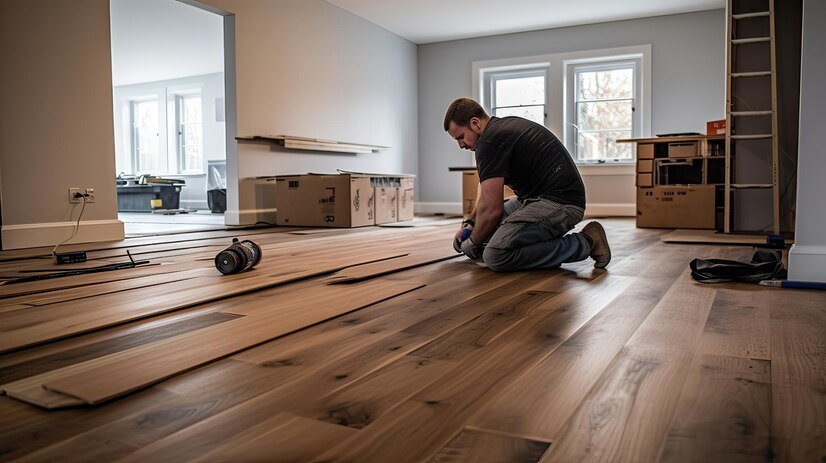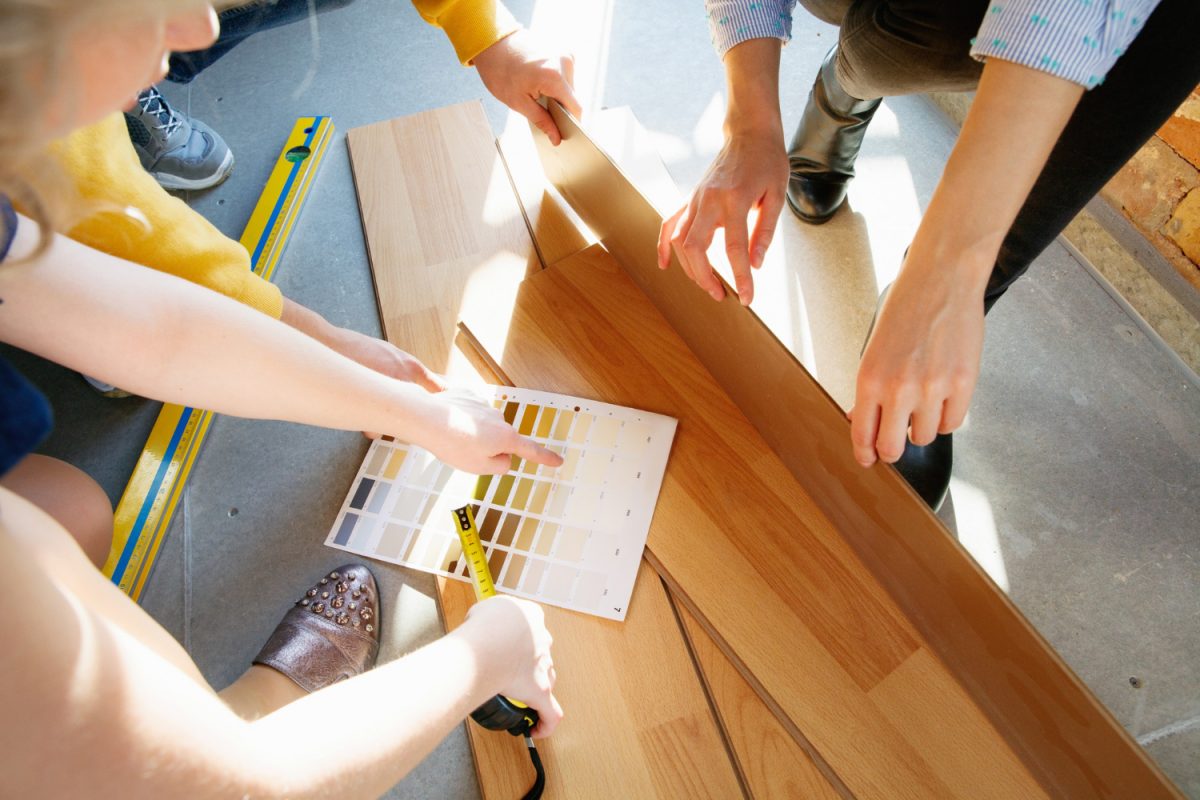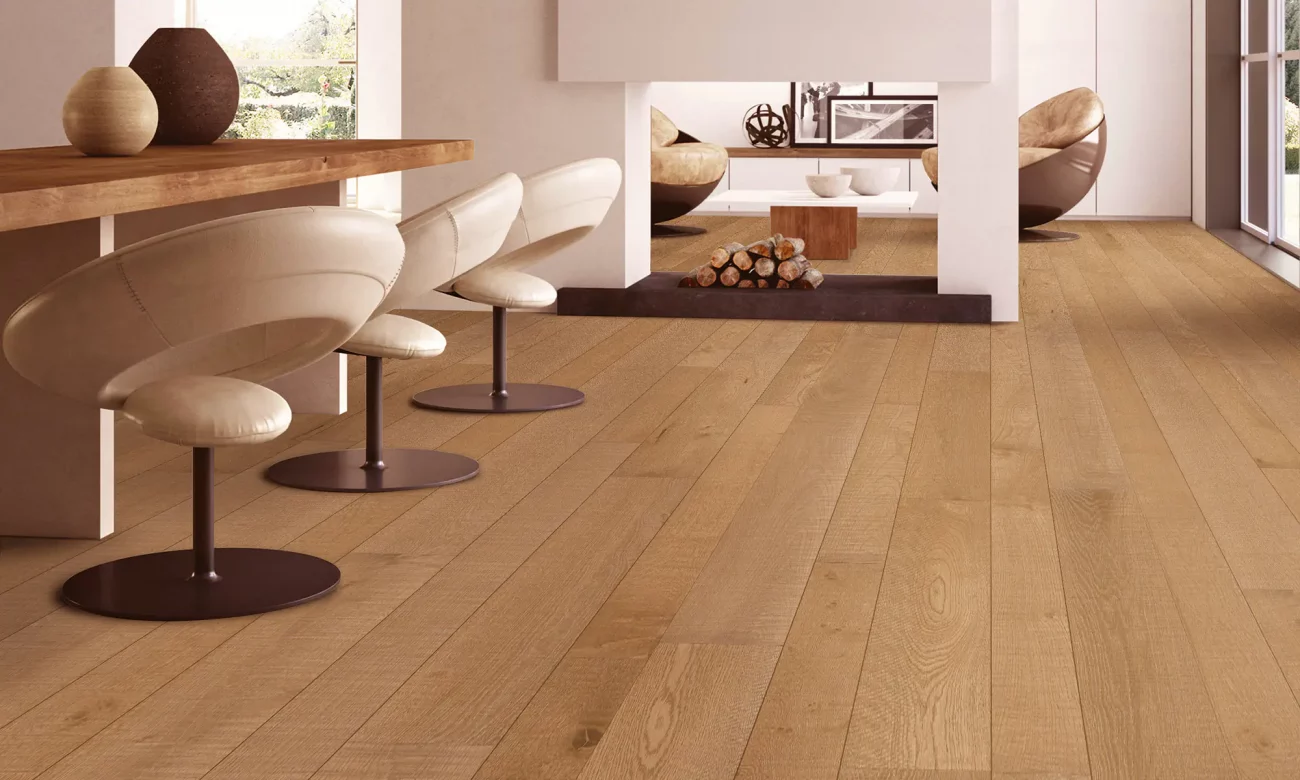When it comes to flooring options, engineered hardwood has gained significant popularity due to its combination of aesthetics, durability, and cost-effectiveness. While solid hardwood flooring has long been revered for its timeless appeal and natural beauty, engineered hardwood floors offer several advantages that make it a compelling choice for budget-conscious homeowners and commercial property owners alike. In this comprehensive exploration, we’ll delve into the factors that contribute to the cost-effectiveness of engineered hardwood flooring compared to traditional solid hardwood options.
Understanding Engineered Hardwood Flooring
Engineered hardwood flooring is a versatile and innovative alternative to solid hardwood flooring. Unlike solid hardwood, which is made from a single piece of wood, engineered hardwood consists of multiple layers that are designed to provide enhanced stability and durability. The top layer, or veneer, is composed of real hardwood, while the core layers are typically made of plywood or high-density fiberboard (HDF). This construction allows engineered hardwood to withstand fluctuations in temperature and humidity, making it suitable for installation in areas where solid hardwood may not be practical, such as basements, kitchens, and bathrooms.
Factors Contributing to Cost-Effectiveness
Material Costs:
One of the primary factors that influence the cost-effectiveness of engineered hardwood flooring is the difference in material costs compared to solid hardwood. Engineered hardwood typically utilizes a thinner layer of hardwood for the veneer, which allows for more efficient use of lumber resources. As a result, engineered hardwood is often less expensive per square foot than solid hardwood, making it an attractive option for budget-conscious consumers.
Installation Costs:
Engineered hardwood flooring is often easier and quicker to install compared to solid hardwood, resulting in lower installation costs. Engineered hardwood can be installed using various methods, including floating, glue-down, or nail-down techniques, depending on the product and installation environment. Additionally, engineered hardwood can be installed directly over existing subfloors, eliminating the need for costly demolition and preparation work.
Durability and Stability:
While solid hardwood flooring is prone to expansion and contraction due to changes in temperature and humidity, engineered hardwood offers enhanced stability and resistance to moisture-related issues. The multiple layers of engineered hardwood provide dimensional stability, reducing the likelihood of warping, cupping, or buckling over time. This durability can result in long-term cost savings by minimizing the need for repairs or replacements.
Versatility and Design Options:
Engineered hardwood flooring comes in a wide range of species, finishes, and styles, allowing homeowners to achieve the look of solid hardwood at a fraction of the cost. Whether you prefer the rich warmth of oak, the sleek elegance of maple, or the rustic charm of hickory, there’s an engineered hardwood option to suit your taste and design preferences. Additionally, engineered hardwood can be installed in various patterns, including traditional plank, herringbone, or chevron layouts, enhancing its versatility and aesthetic appeal.
Maintenance and Longevity:
Engineered hardwood flooring requires minimal maintenance to keep it looking its best. Regular sweeping, vacuuming, and occasional mopping are typically all that’s needed to maintain the beauty and durability of engineered hardwood. Additionally, many engineered hardwood products come with factory-applied finishes that provide added protection against scratches, stains, and wear, reducing the need for refinishing or recoating over time.
Considerations and Caveats
While engineered hardwood flooring offers several cost-effective advantages over solid hardwood, it’s essential to consider various factors before making a final decision:
Quality and Thickness:
Not all engineered hardwood flooring products are created equal. It’s essential to choose a reputable manufacturer and select a product with a high-quality hardwood veneer and durable core layers. Thicker veneers and higher-grade materials may come at a higher initial cost but can offer better long-term performance and durability.
Installation Considerations:
While engineered hardwood is generally easier to install than solid hardwood, proper installation is crucial to ensuring optimal performance and longevity. It’s recommended to hire a professional flooring installer with experience working with engineered hardwood to achieve the best results.
Moisture and Environmental Factors:
While engineered hardwood is more resistant to moisture than solid hardwood, it’s still susceptible to damage from excessive moisture and humidity. Proper acclimation, subfloor preparation, and moisture mitigation measures are essential to prevent issues such as buckling or warping.
Lifespan and Resale Value:
While engineered hardwood flooring can offer excellent durability and longevity, it may not have the same lifespan or resale value as solid hardwood in some cases. However, with proper care and maintenance, engineered hardwood flooring can provide many years of beauty and performance at a fraction of the cost.
Conclusion
Engineered hardwood flooring offers a compelling combination of affordability, durability, and aesthetic appeal that makes it a cost-effective option for homeowners and property owners alike. With its innovative construction, wide range of design options, and ease of installation and maintenance, engineered hardwood provides an attractive alternative to traditional solid hardwood flooring. By carefully considering the factors outlined in this guide and selecting a high-quality product from a reputable manufacturer, you can enjoy the beauty and benefits of hardwood flooring without breaking the bank. Whether you’re renovating your home, updating a commercial space, or building a new property, engineered hardwood flooring is a versatile and budget-friendly solution that adds value and elegance to any interior environment.





